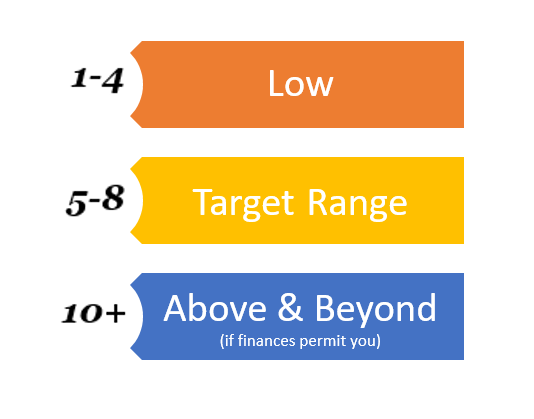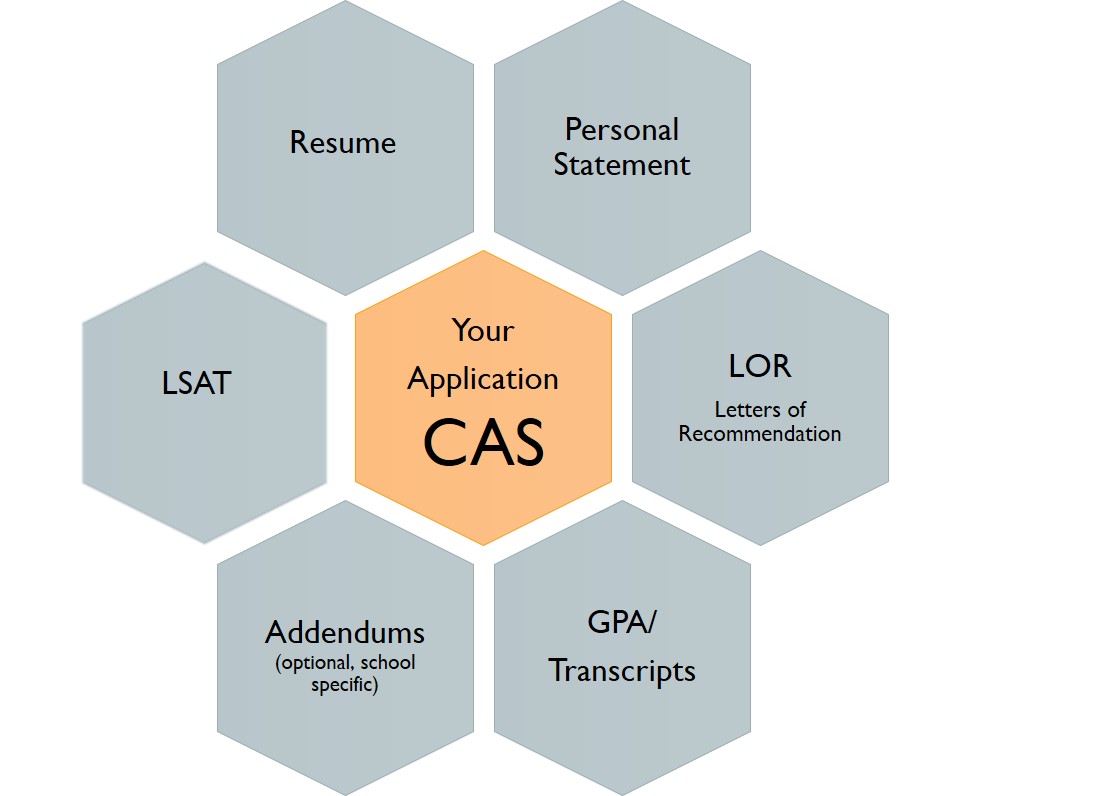One of the more difficult questions to answer after deciding to apply to law school in the upcoming admissions cycle is where to apply? With over 200 law schools in the country, it can be a seemingly hard process to narrow down the list of schools you could potentially attend. Below, we’ve outline some important factors and information you should be taking into consideration when deciding where you want to apply to law school.
All students will need to set individual goals for the law school they will choose. There are many factors to consider and every student will have different goals they hope to achieve through the admissions process. Determine what is most important to you in a law school and base your decision on where to apply using these goals as a guide!
As always, you can meet with a Pre-Law Advisor to work through your decision-making process and help configure your law school application list! LSAC also provides helpful information to students exploring law school options.
Factors to Consider!
Medians – Your GPA and LSAT
They aren’t everything – but they are an excellent guide…
Medians LSAT and GPA aren’t everything, but medians do give good insight on the credentials law schools are looking for when admitting applicants and the general competitiveness of your credentials among previous, successful incoming students.
-
-
- Let medians inform and guide your decision-making process, but don’t let medians be the sole controlling factor on where you will or will not apply. Evaluate how your LSAT and GPA compare through the LSAC Law School database search!
- Apply Sooner, Rather than Later! Law schools have the most flexibility in their admissions process at the beginning.
-
Location, Location, Location
- Law schools will assist in placing students around the country following graduation. However, attending law school in or near the same community you would like to practice in does provide unique opportunities to learn about that specific legal market, engage in experiential opportunities, and develop professional networks both during the academic year and in the summer months. It also helps demonstrate your commitment to residing in the area post-graduation!
The most important question you may want to ask yourself is: Would I live here? Consider the type of community (college town, large city, or rural area), activities and resources available, and important personal factors such as proximity to family? Remember you will be here for three years!
Cost
Law school is an investment. As intimidating as the tuition price may seem, there are many factors that can help make the cost of attending law school manageable, and students finance law school in a variety of ways including scholarships, financial aid, grants, and private loans. Being well informed is key to being able to make strategic decisions about cost and determining if this investment is one you are willing and able to make.
-
- Tuition: Exploring tuition parameters and amounts at each school is necessary! Public vs. private law schools may also have different approaches to tuition. Public schools generally will have lower tuition, differentiating in-state and out-of-state students. In-state students will typically receive an in-state tuition rate. Private schools will have a standard tuition rate for all students, regardless of residency.
- Cost of Attendance (COA): Law schools will publish their anticipated Cost of Attendance on their website. COA is meant to provide a holistic look at the financial requirement to attend the specific law school. It includes tuition, fees, living expenses, travel, costs, and book expenses. It is important to review this information for each individual school in advance, and in conjunction with any scholarship or financial aid offers.
- Scholarships and Financial Aid: Each law school determines scholarship awards differently. Most admission scholarships are merit based and are evaluated automatically upon offers of admissions. Some schools will have additional scholarships or grants for incoming students based on unique attributes or financial need. Investigate each school and learn about their scholarship awards and guidelines!
- FAFSA: Students applying to law school who wish to be eligible for financial aid will need to complete a FAFSA. Schools will calculate your financial aid package upon admission.
- Negotiating scholarships: Some schools will allow students to negotiate the scholarship or financial aid package they have received.
- Do > compare offers from all schools, keeping in mind offers are most directly comparable to similarly situated law schools! Look at the schools cost of attendance rate (COA), do you have unique needs that the COA does not account for? How does it compare to other schools?
- Don’t > violate any policies that a law school may have, such as final determinations of scholarships and no negotiating practices.
Academic and Experiential Opportunities
Be sure to look curriculums and specific course offerings as they relate to your current or possible interests. Consider the types and diversity of courses offered, including experiential opportunities. Be sure to check out clinical and other credit-earning experiential opportunities!
Remember plans change! Don’t base your decision solely on course offerings as your plans may change and all law schools will offer diverse curriculums to prepare you for any practice area!
Employment & Bar Passage
An important consideration to take into account when deciding on a law school is the school’s bar passage and employment placement rates. Going to law school should put you in the best possible position to set up your legal career, and passing the bar exam and securing a job are the first hurdles you’ll need to clear before embarking on that journey. These two metrics will provide insight on how well the law school prepares its students for post-graduation success.
-
- Clerkships! Ask the Check-out the law school’s website or ask the Admissions office about the schools success in placing students in state and federal clerkships post-graduation!
Class Size
Class size varies by law school. Typically, each first-year class is split up into different sections. If you thrive in a more personal learning experience, or excel in a large classroom setting, it is important to learn how big the first year class is and what the structure for classes will be. Below are some examples of the recent incoming Class of 2022 sizes:
-
- University of Illinois College of Law: 130 students
- Washington University School of Law: 229 students
- Georgetown University Law Center: 573 students
ABA 509 Disclosures
Each year, the ABA requires law schools to disclose specific information about their law school. The ABA 509 Disclosure reports are an extremely helpful tool that will provide you a snapshot of much of the information mentioned above. On the report, you can find bar passage, employment, class size, scholarship, tuition, and cost of attendance, living expenses, and much more! Each law school will have a compiled report. You can access the ABA 509 reports here.
CAST A WIDE NET
Ultimately, law schools will be making admissions decisions based on criteria and goals that you will not know and from an applicant pool that looks different every year. Casting a wide net optimizes your chances of an acceptance for the current application cycle and allows you to thoughtfully send out applications to schools you have targeted and determined would be a good fit for you.Therefore, determine your own personal goals and consider applying to a broad range of schools: dream schools, target schools, and safety schools.
The chart below illustrates what general range you will fall into, based on the total number of schools you submit applications to:

Credential Referral Service (CRS)
CRS is offered through LSAC and will require separate sign-up, including your permission for LSAC to release your information to schools that you did not apply to. The CRS may help you gain greater exposure to law schools, particularly ones you may not have considered. CRS provides law schools the ability to pursue potential applicants that did not apply directly through general information or individual outreach. Some may also extend fee waivers for your applications!
Debunking Myths
“Ranking is most important, I must go to a ‘T14’ law school to be successful, or work in ‘big law,’ or work in a big city.” False. Many schools not in the ‘T14’ place students all over the country at many different jobs ranging across the spectrum. You should not have the “higher ranking = more prestige = more successful” mindset, as that might prevent you from discovering amazing opportunities and incredible schools. Remember to check the 509 reports and talk with schools about their career placement!
“I have to go straight through to law school to be a desirable candidate.” False. This is the perfect time to weigh all of your options and consider taking a gap year, or more, to get valuable work experience. Law schools do not discriminate against non-traditional candidates, and some law schools even value a gap year of experience.
“I have the best chances of getting into my alma mater’s law school.” False. Law school admissions take a holistic approach, considering each aspect of your application when making admissions decisions. Though your alma mater’s law school maybe more familiar with your coursework, the rigor involved, and certain academic achievements/campus opportunities; that does not mean you have a better chance at admission. Cast a wide net


